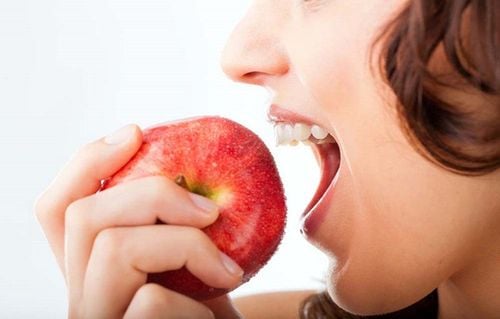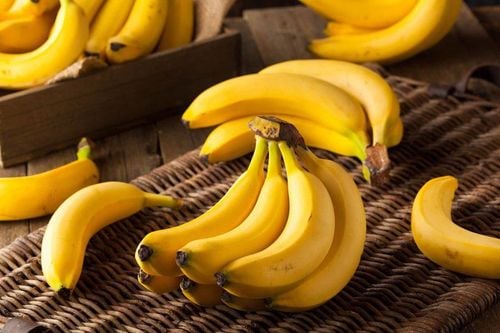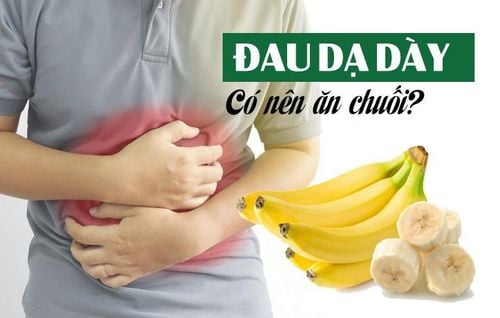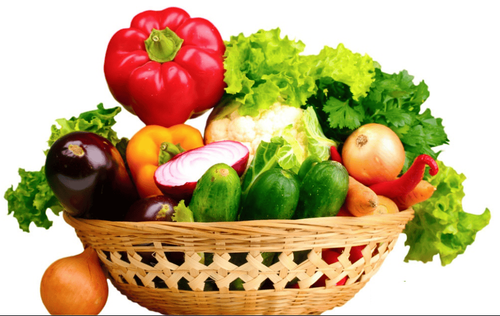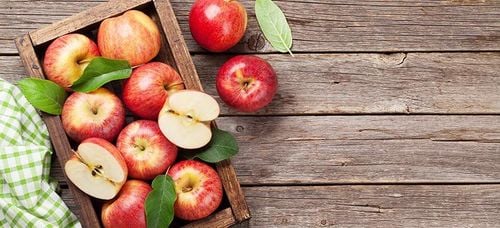This is an automatically translated article.
Many people think that eating healthy foods is expensive and we have to spend more money on a “healthy” menu. However, this is not entirely true. We don't need to spend a lot of money to pursue a healthy diet. Please refer to the following 29 cheap and healthy foods.1. 9 types of healthy vegetables at extremely low prices
1.1. Broccoli Broccoli is a cheap, popular vegetable that can provide almost every nutrient you need.It is especially rich in vitamin C, which acts as an antioxidant and can boost your immune system. Just one cup of broccoli provides 135% of a person's daily needs. In addition, broccoli is rich in vitamin K and folate, both of which play a role in blood clotting and prevent certain neural tube birth defects. Studies show that the nutrients and antioxidants in broccoli can help prevent chronic diseases like cancer and heart disease.
1.2. Onions Onions are a popular vegetable with many health benefits and they are quite cheap. They are well known for being rich in certain antioxidants that may protect against heart disease, diabetes and certain types of cancer. Additionally, onions provide small amounts of several nutrients, including vitamin C, manganese, vitamin B6 and potassium. The flavor of onions makes them a great addition to any dish.
1.3. Spinach Spinach aka spinach is quite healthy and almost always reasonably priced.
Spinach is rich in vitamin K, which plays an important role in bone health and reduces the risk of heart disease and cancer. Additionally, spinach provides immunity-boosting vitamin A, vitamin C, folate, and manganese. Like other green leafy vegetables, spinach also contains beneficial plant compounds. They have the ability to reduce inflammation and prevent cell damage, helping to prevent chronic diseases.
Incorporating spinach into your diet is very simple. You can add it to salads, casseroles and soups. It can also be blended into smoothies for a nutrient boost.
1.4. Russet Potatoes Russet potatoes are an excellent source of nutrients and are often reasonably priced.
Regularly eating potatoes with the skin on can benefit brain and immune system health. This is due to the significant amount of vitamins C and B they provide. They also contain fiber that helps aid digestion and control appetite. In addition, potato skins are rich in minerals, especially potassium. In fact, a medium-sized potato contains twice the amount of potassium found in a banana.
1.5. Sweet potatoes Sweet potatoes are incredibly healthy and are one of the cheapest vegetables you can buy. They provide an impressive amount of vitamins and minerals that have many health benefits. They are especially high in beta-carotene, which is converted into vitamin A in the body. Just one sweet potato provides 369% of your daily vitamin A needs, which is important for eye health. Sweet potatoes also contain a good amount of B vitamins, vitamin C, potassium, and fiber. Studies suggest they may have anti-inflammatory effects, helping to reduce the risk of chronic diseases like cancer and diabetes.
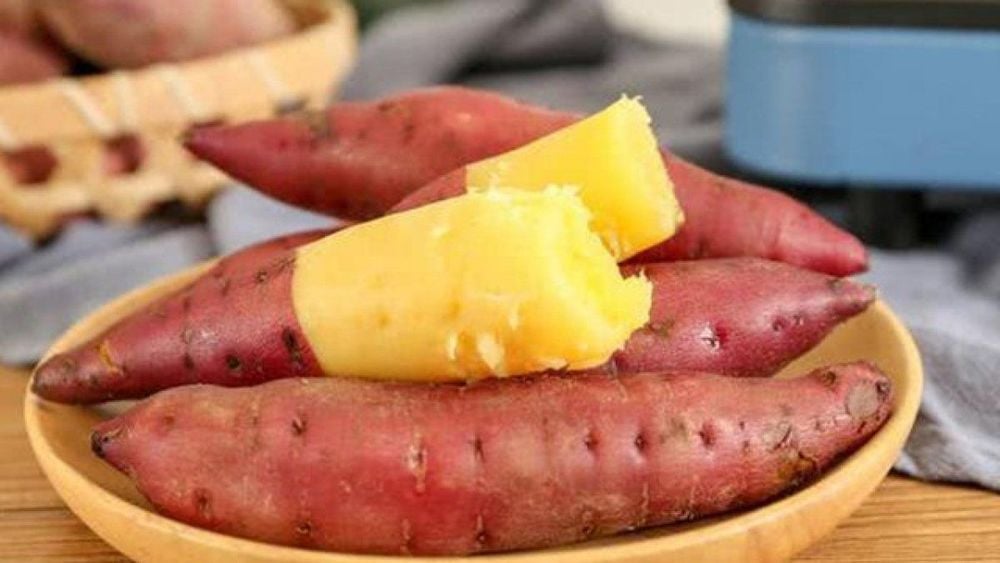
Khoai lang là loại thực phẩm tốt cho sức khỏe mà lại dễ tìm, dễ mua
What really makes tomatoes stand out is their vitamin C content. Tomatoes also provide a good amount of B vitamins, vitamins A, E and K, and many trace minerals. Studies have shown that eating tomatoes can help lower levels of "bad" LDL cholesterol and blood pressure levels, two major risk factors for heart disease. What's more, they may protect against certain types of cancer.
Many of their health benefits are due to their high lycopene content. Lycopene is an antioxidant that can reduce inflammation, protect cells from damage, and reduce the risk of disease.
1.7. Carrots If your budget is tight, carrots are a cheap and nutrient-dense vegetable to include in your diet. Carrots are one of the vegetables high in beta-carotene, which explains their impressive vitamin A content. Just one cup of carrots provides 428% of your daily requirement of vitamin A, which promotes good vision and boosts immune system health.
Furthermore, carrots contain a significant amount of fiber, vitamin C, vitamin K, potassium and manganese. Due to their high antioxidant content, eating carrots regularly may help reduce the risk of several types of cancer, including prostate cancer and stomach cancer.
Carrots are also very easy to prepare. We can cook it or eat it raw. In addition, they are a great addition to salads and cooked dishes.
1.8. Green cabbage A large amount of vitamins C and K can be found in green cabbage, in addition, there are a number of B vitamins and trace minerals. Cabbage and other cruciferous vegetables stand out for their glucosinolate content. Glucosinolate is an antioxidant that has been studied for its ability to protect against certain types of cancer.
Some studies have also found that eating cabbage can significantly reduce the risk of heart disease. As a versatile vegetable in cooking, cabbage is easy to add to anyone's diet. It is often used in salads and coleslaw, or can be fermented and made into sauerkraut.
1.9. Butter Pumpkin Avocado is a nutrient-dense option to include in your diet and it's quite affordable. Compared to other types of winter squash, avocado squash provides a higher amount of nutrients. What's more, it's an exceptionally rich source of soluble fiber and antioxidants, which have many health benefits, including weight control and a reduced risk of heart disease.
There are different ways to incorporate pumpkin into each person's diet. It tastes good on its own but is often served as a side dish.
2. 7 super cheap healthy grains and beans
2.1. Brown Rice Brown rice is a great, inexpensive food that provides fiber, vitamins, and minerals. Brown rice is mostly carbs, with 4 grams of fiber per cup (195 grams), and high amounts of B vitamins, magnesium, phosphorus, and manganese. The health benefits of brown rice include reducing the risk of type 2 diabetes and heart disease, as well as promoting weight control.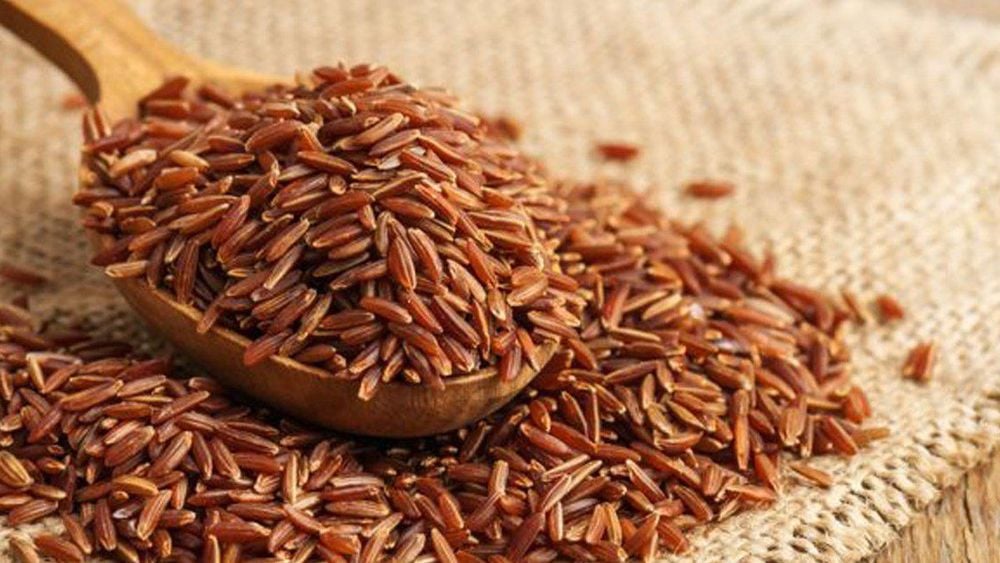
Gạo lứt là loại thực phẩm tuyệt vời đối với người bệnh tiểu đường
The combination of fiber, vitamins and minerals in oatmeal may potentially reduce the risk of several diseases, including type 2 diabetes, heart disease and obesity. Oats are often enjoyed as a breakfast food. You can combine them with fruit, milk, yogurt and some other ingredients for a healthy and delicious meal.
2.3. Beans Beans are a pocket-friendly food that is also very nutritious. Beans contain significant amounts of fiber and a variety of vitamins and minerals, including folate, iron, magnesium, and potassium.
Furthermore, they are an excellent source of plant-based protein. There are 15 grams of protein in one cup (172 grams) of black beans, which are beneficial for weight maintenance and muscle strength. Bean consumption has also been linked to a reduced risk of heart disease and diabetes. This may be due to their ability to lower cholesterol and promote blood sugar control.
Beans can be incorporated into any dish. They are often added to soups, salads, and burgers.
2.4. Dried lentils One cup (198 grams) of lentils provides a significant amount of nutrients, including 90% of a person's daily requirement for folate, 37% for iron, 25% for copper and 49% for with manganese. They also contain an impressive amount of protein and fiber, which is why they can increase feelings of fullness and help with weight management. Furthermore, lentils contain antioxidants that help protect cells from inflammation. This can reduce the risk of chronic diseases like diabetes and cancer.
Research also shows that eating lentils is linked to improved blood pressure and cholesterol levels, which are important for preventing heart disease. The use of lentils is similar to that of beans and there are a number of ways they can be included in the diet, such as in salads and soups.
2.5. Soybeans Soybeans are a healthy and inexpensive food. It's a great fiber-rich food and provides a number of nutrients, including vitamin K, folate, and almost every trace mineral your body needs. What's more, it's also a rich source of plant-based protein, providing 17 grams in a one-cup (155-gram) serving.
Studies show that soybeans in particular and other legumes in general can help reduce the risk of heart disease, osteoporosis and certain types of cancer. This is often attributed to their isoflavones content, which function as antioxidants in the body.
2.6. Quinoa In general, quinoa is a very inexpensive food that provides many nutrients. Quinoa is a complete protein source, which means it provides all the essential amino acids your body needs.
This sets it apart from other grains, as they need to be combined with other foods to be considered a complete protein source.
In addition, quinoa contains antioxidants, fiber, B vitamins, vitamin E, iron, manganese, zinc and several other trace minerals, all of which protect your cells from normal damage lead to illness. The health-promoting properties of quinoa have been shown to promote brain health and may help prevent the development of heart disease.
2.7. Popcorn Popcorn aka popcorn is a great snack, especially because it's healthy and cheap. It is very low in calories compared to other whole grains. With just 31 calories per cup (8 grams), you can eat a lot without gaining weight.
Furthermore, popcorn provides some fiber and disease-fighting antioxidants, as well as a fair amount of B vitamins and magnesium.
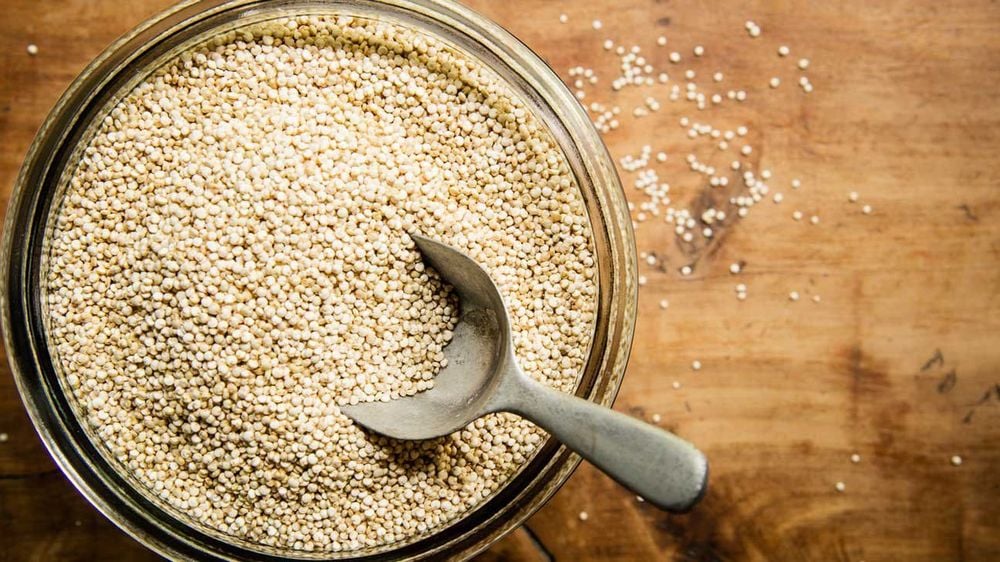
Hạt diêm mạch cung cấp cho bạn nguồn protein hoàn chỉnh
3. 6 types of healthy fruits that are extremely cheap
3.1. Banana As one of the cheap fruits, bananas can bring many health benefits. They contain several important vitamins and minerals, such as vitamin C, vitamin B6, potassium and manganese. In addition, bananas provide a good amount of fiber, which may benefit digestive health, promote weight loss, and protect against diabetes.You can enjoy bananas as a quick snack. They also taste great when paired with peanut butter or yogurt.
3.2. Orange Orange is very healthy and cheap. They are prized for their vitamin C content. Just one orange provides 116% of your daily needs for this immune-boosting vitamin. They also provide fiber, antioxidants, and many other nutrients, including B vitamins, calcium, and potassium.
Regular consumption of oranges and other fruits has been shown to reduce inflammation in the body, thereby reducing the risk of certain diseases, such as metabolic cardiovascular disease, diabetes and obesity .
3.3. Frozen Berries Berries are considered super fruits and are reasonably priced when purchased frozen.
Their incredible antioxidant content makes them one of the healthiest fruits humans can eat. In fact, berries are considered one of the best natural sources of antioxidants
Consumption of antioxidant-rich berries has been linked to the prevention of several chronic diseases, such as such as heart disease, Alzheimer's disease and some types of cancer. Furthermore, they are high in fiber and many nutrients, especially vitamin C, vitamin K, and manganese.
3.4. Apple Apples are very healthy and often cheap. One medium apple contains 3 grams of fiber, which has been shown to help with weight loss and blood sugar control.
Furthermore, apples provide some vitamin C, B vitamins and trace minerals, as well as several antioxidants. Eating them regularly can help reduce inflammation in the body, which is a major risk factor for a number of chronic diseases.
3.5. Cantaloupe Cantaloupe is a nutritious and affordable fruit. One of its remarkable characteristics is its low calorie content. There are only 53 calories in a cup of cantaloupe, making it a weight loss-friendly food.
It contains many important nutrients, providing 106% of our daily needs for vitamin A, 95% of vitamin C and 12% of potassium in a one-cup (177-gram) serving.
Like other orange-colored vegetables and fruits, cantaloupe contains the antioxidant beta-carotene, which has health benefits such as preventing cancer and heart disease.
3.6. Kiwifruit One medium kiwi provides 117% of a person's daily vitamin C requirement, which is the main reason why eating them helps support immune system function. They're also rich in fiber, vitamin K, potassium, and antioxidants, all of which work together to protect your cells from damage and reduce your risk of chronic disease.
Kiwi may be especially helpful for heart health, eating them regularly has been shown to increase levels of “good” HDL cholesterol, lower blood fat levels and lower blood pressure.
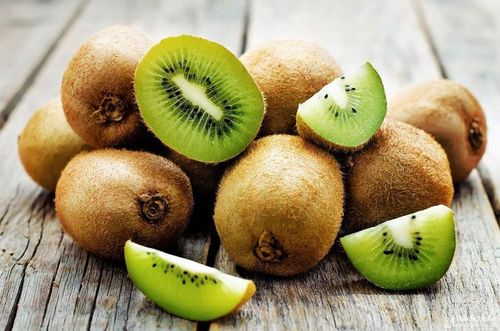
Kiwi là loại trái cây đặc có lợi cho sức khỏe tim mạch của bạn
4. Very cheap healthy fish, meat and eggs
4.1. Canned fish Canned fish has many health benefits and is significantly cheaper than fresh seafood. Not only is fish a great source of protein, but it's also packed with omega-3 fatty acids, which are important for brain health and reducing inflammation.In addition, fish provides high amounts of the trace mineral selenium, which may boost immune system health and protect against cancer. Plus, if you buy canned fish with bones, you'll get a healthy dose of vitamin D, calcium, and phosphorus.
4.2. Pork Pork is quite cheap compared to other meats. Pork is a good source of protein as well as B vitamins, phosphorus, zinc, iron and selenium. The combination of protein, vitamins and minerals in pork can promote muscle growth and maintenance and improve exercise performance.
4.3. Eggs Eggs are one of the most nutritious foods on the planet and they are very affordable. One medium egg also contains 6 grams of protein and antioxidants that have anti-inflammatory properties and may protect eye health.
Furthermore, eggs provide almost every vitamin and mineral you need. They are also one of the few food sources of choline, a nutrient that plays a role in brain function.
4.4. Chicken Breast In half a piece of chicken breast, there are 27 grams of high-quality protein, which means it contains all the essential amino acids your body needs. Chicken breast also contains many important vitamins and minerals, such as niacin, vitamin B6, phosphorus, magnesium and selenium.
Including chicken breast in a healthy, balanced diet has been shown to reduce the risk of obesity, heart disease and diabetes. It may also protect you from cancer risk.
5. 3 super cheap healthy dairy foods
5.1. Cottage cheese Cottage cheese is an excellent source of protein, providing 14 grams a half cup (113 grams), about 28% of your daily needs and may help with appetite control and weight maintenance. In addition, it contains many other nutrients, including calcium and phosphorus, which are known to play an important role in bone health.5.2. Yogurt Yogurt is nutritious, pocket-friendly and found in most stores. Just one cup (245 grams) of yogurt, contains 13 grams of protein and lots of B vitamins, plus it contains 45% of your daily needs for calcium, 35% for phosphorus and 15% for zinc.
Furthermore, some yogurts are a good source of probiotics, which are healthy bacteria that can benefit digestive health. Yogurt tastes great when paired with fruit or nuts, or it can be added to smoothies. It can also be made into sauces and combined with cooked dishes.
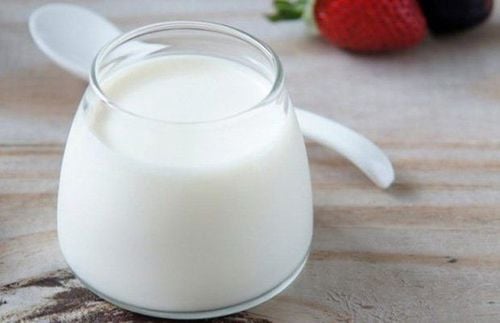
Bạn có thể dễ dàng tìm thấy loại thực phẩm tốt cho sức khỏe như sữa chua ở cửa hàng
A healthy diet doesn't have to be expensive. There are many affordable, nutrient-rich foods that you can buy without worrying too much about their prices. In fact, some healthy foods are cheaper than processed junk food. The foods that we have listed above are all based on the criteria of being affordable, healthy and easy to add to the diet.
Please follow the website: Vinmec.com regularly to update many other useful information.
Please dial HOTLINE for more information or register for an appointment HERE. Download MyVinmec app to make appointments faster and to manage your bookings easily.
Reference article: healthline.com




